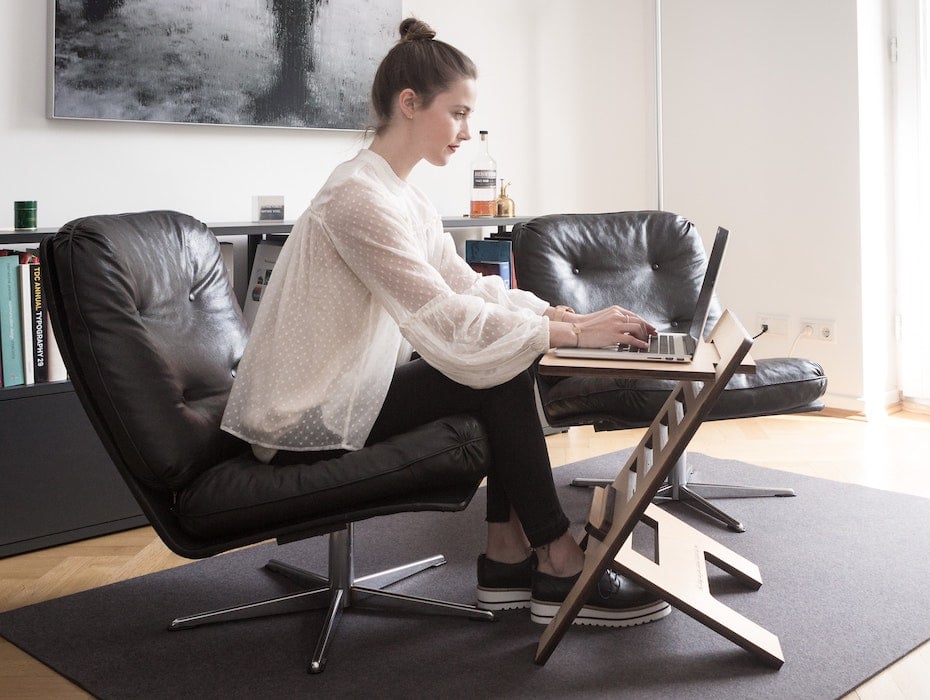Rhona Sweeting says that when she tells people she doesn’t want children, she often gets the kind of reaction someone might have expected when coming out as gay years ago. In an interview with the BBC, she said, “There’s the same sense of shock—perhaps that’s too strong a word. But it’s a lifestyle people don’t expect and it may challenge their world view.”
Rhona is 31, and she’s part of a growing group of women who are choosing not to start families. And though it’s only recently that women started to actually have the choice, it’s one that’s growing in popularity. Studies show that at midlife (between ages 41 and 55), nearly half of all women with careers in the United States don’t have children.
Grace Lee, a technical recruiter at RingCentral, doesn’t have children yet, but her new-normal situation of working from home has allowed her to foster over a dozen kittens—at times she has had to bottle-feed them every two hours—and to devote more thought to plans to start a family. “My work as a recruiter hasn’t been negatively impacted by working from home, so I’ve started having conversations about long-term remote work with my manager,” she explains. “With the newfound flexibility of working from home, the thought of starting a family is taking shape.”
Lee is a woman whose career happens to be thriving amid these strange times. For many women, of course, the reality is quite different. In early 2020, when the coronavirus pandemic hit, women were hit hardest. Indeed, women accounted for 60 percent of the jobs lost in March.
Before the pandemic, as of December 2019, women actually constituted the majority of the workforce for the first time since 2010. But by April, their rate of participation in the labor force had dropped more than that of men—below 55 percent.
And when we look at the demographics involving working women, more and more of them are single. In fact, Morgan Stanley Research predicts that, by 2030, single women will make up an estimated 45 percent of all prime-working-age women (25 to 44)—the highest that number has been in history. We can’t ignore that workingwomen—and single workingwomen, at that—are on track to become the majority of the workforce.
Working woman doesn’t mean working mom
Whether a woman is partnered up or not, there’s another choice she now has: whether or not to become a mother.
We tend to equate “workingwomen” with “working moms.” Especially when it comes to women in remote work, the discussion centers on being a mother who works from home.
“I get it,” Deb Tennen writes in an article on FastCompany. “I’m a woman and a mom. When I think about the best parts of working from home as a woman, a lot of what comes to mind is mom stuff.” And Tennen is right: Much of the content about, support for, and coverage of working from home—especially in the pandemic—focuses on working moms.
This trend isn’t for naught—there’s a lot to be said about mothers who work from home, good and bad. Plying her trade from a desk off the kitchen might allow a mom to remain closer to childcare duties, but it can also increase the burden she already carries in the home. A March 2020 Gallup poll found that a majority of working women who have working husbands still handle most domestic duties like laundry, cooking and cleaning the house.
To add to the already stressful situation of juggling work and motherhood, working mothers have been hit hardest by the new circumstances many were thrust into by the pandemic. Single mothers, in particular, have lost jobs at a higher rate than other families with children, and we’ve seen the tagline “you can’t have both” go viral. In a recent New York Times article aptly titled In the Covid-19 Economy, You Can Have a Kid or a Job. You Can’t Have Both. author Deb Perelman recalls a line she often hears uddered to working mothers during the pandemic — “‘You shouldn’t have had kids if you can’t take care of them,”’ is comically troll-like, but has come up so often, one might wonder if you’re supposed to educate your children at night.”
Many are arguing that being a parent and working from home is impossible—and recognizing that the burden of working from home has fallen more heavily on working mothers (see, for example, this article in Rolling Stone).
Still, the fact of the matter is that not all women working from home are mothers, and there are many reasons women choose to work from home other than parenting.
The stereotypes of not choosing motherhood
Historically, women have been discriminated against for not having families. Monica Torres recalls that “Early in my career, I had a male manager who casually told us during an all-hands meeting that one reason we would not be getting raises or paid time off was because we did not have children to support.” A bit shocking, right? How about the notion of employees who are also parents receive childcare stipends, more time off, or other benefits that non-parent employees don’t receive? This article cites a recent example at Facebook where at a recent company-wide meeting, Facebook employees repeatedly argued that work policies created in response to Covid-19 “have primarily benefited parents.”
Bella DePaulo, an expert and the author of Singled Out: How Singles Are Stereotyped, Stigmatized, and Ignored, and Still Live Happily Ever After, works to debunk the common misconception that “if you don’t have children to support,” you don’t need to have a life outside of work. “That’s a common stereotype that gets attached to single people,” DePaulo says.
There are many stereotypes associated with being single or choosing not to have children that affect the treatment of women at work—whether they are working from home or not. “Single people without kids get saddled with the stereotype that because they don’t have a spouse or kids, they ‘don’t have anyone’ and they don’t have a life,” DePaulo explains. “Of course, that is totally untrue. Single people have people who matter to them, and commitments and interests and passions that matter to them.”
“All that should be irrelevant anyway—the workplace should be about work. Everything should even out—how often you get to leave early, come in on the holidays, get your choice of vacation times, etc.—such that over time, every worker is treated the same, and marital status or parental status do not matter at all.”
Unfortunately, these stereotypes lead to women being treated poorly at work. In a poll of more than 500 women working full time, a significant number observed greater flexibility given to parents. And of those, over 25 percent said that “women with children were more likely to be given flexibility in terms of things like working hours.”
Now that many more women are working out of the house, additional flexibility is a must for mothers. But that doesn’t mean that workingwomen who are not moms shouldn’t also be given flexibility to focus on other areas of their lives.
Supporting women—all women—working from home
Working from home provides many benefits to women, regardless of whether they are mothers, like time to prioritize their health and well-being, a more comfortable physical environment, and the space and time to invest in hobbies.
That doesn’t mean it’s all wine and roses. The reality is, it’s important to support all women who are working from home, whether they’re mothers or not.
Melanie King, the PR director at Lendio, has focused much of her energy on supporting colleagues who might feel isolated or live alone. “Many of my coworkers have struggled with social isolation since working from home, so I’ve made a point to have virtual lunches with them and keep up a cadence of informal connection,” she says.
Sarah Fricke, a senior manager of global sales enablement, suffered a miscarriage at the start of the pandemic. “It’s amazing how many people share a similar story to mine, but how little we actually talk about it,” Fricke says. “I’m finally comfortable sharing with my teammates and realize how important it is to support each other—nobody knows what others are experiencing.” Sharing her own experience with colleagues has helped her feel more supported at work and in her adoption of a new puppy, Walter.
There are women who don’t have families, women who are trying to start families, and then there are women who opt to pursue hobbies, alternate lifestyles, or grind it out on a side outside hustle, and they too deserve the same amount of support and benefits from their colleagues and place of employment. Flexibility matters to all of these women, regardless of their choices.
Supporting women, no matter their decision to parent
Everyone deserves the same treatment, support, benefits, and flexibility, no matter their situation. It falls on managers and leadership to recognize this, and to place equal weight on the things happening in single or childless employees’ lives (see this HuffPost piece).
Briana Lassig, a senior product marketing manager at RingCentral, is one of several members of her team who don’t have children yet but who are planning weddings. “We touch base about our wedding plans every so often—I’m curious what others are going through and how they’re adjusting their plans,” she says. “Expressing interest in what’s going on in others’ lives—and not centering that conversation around kids and homeschooling all the time—is important to keeping our team connected and everyone feeling like they’re on equal footing.”
Especially since the initial transition to working from home, the emphasis has been on children—they are often seen popping into video conferences or video happy hours (which is greeted with far less of a stigma than it previously was). But the idea that someone might be working on their craft hobby or planning a wedding is a little less obvious, unless it’s brought up or asked about.
Obvious or not, we’re seeing women largely thrive while working from home—and this despite the added anxieties of the present moment. Mothers and non-mothers alike are finding they have more time outside of work when they work from home. For mothers, a lot of that time is given over to childcare and family duties, but the way Melissa Regan sees it, it’s like having electives at school. “We have the core classes—work and responsibilities—but all of a sudden, we have the choice of taking some electives,” says Regan Manager, Manager of Global Sales Enablement & Onboarding for RingCentral. “Are you going to choose to spend more time with your family? Are you going to choose art? Are you going to choose working out? We now have a choice of how to spend the time we’ve gained by working from home.” The idea that everyone has electives, including women who don’t yet have or have chosen not to have families, is crucial to setting everyone up for success.
Looking forward, the likelihood is that when circumstances afford people the option to go back to the office, women who are not mothers will likely be expected to return to work at a higher rate than those who are single or empty nesters. For leaders, it’s more important than ever to consider that working from home might be a net positive for many women and to give them the choice of whether to return to the office—regardless of how many dependents they have.
Read more on how women are thriving in their at-home work environments:
Chapter 7: The myth of exceptionalism
Chapter 8: The pandemic is making it easier for the “first” woman
Chapter 1: Why achieving work-life harmony is more satisfying — and achievable — than balance
Originally published Feb 17, 2021, updated Dec 30, 2022





